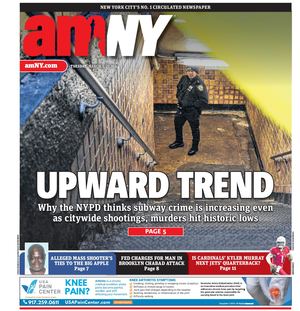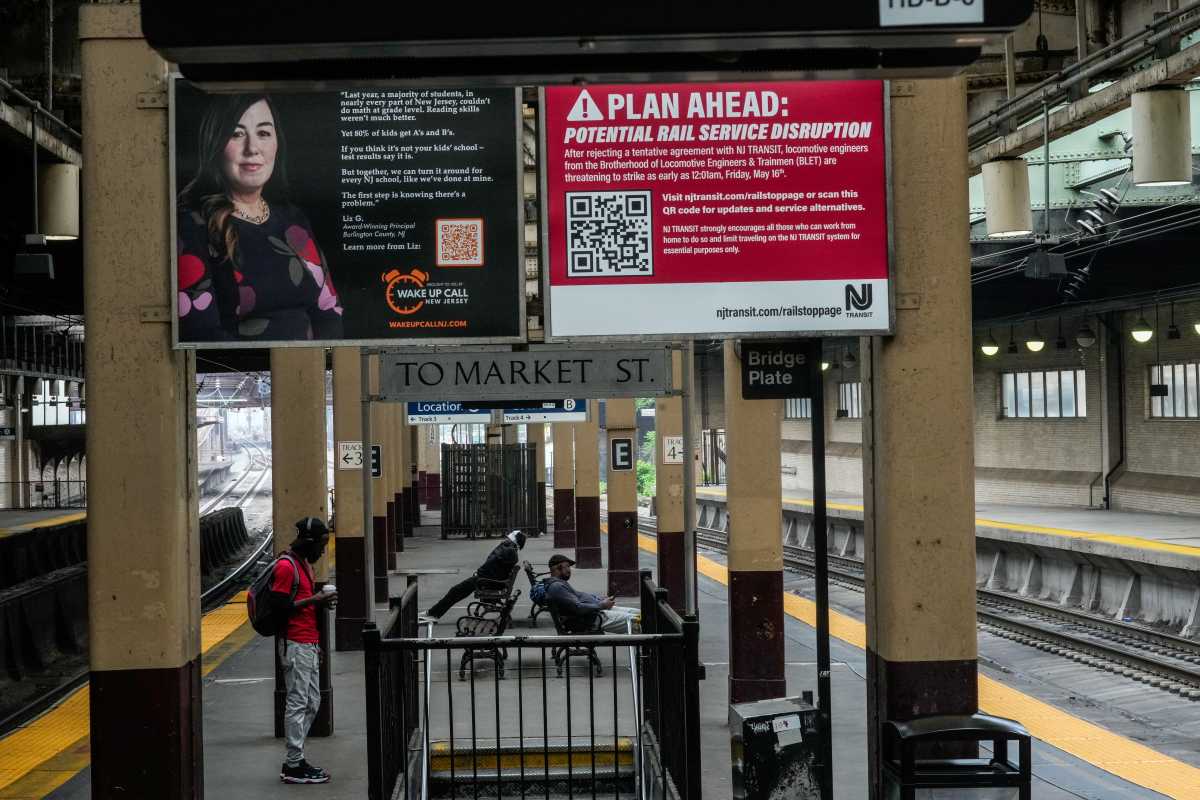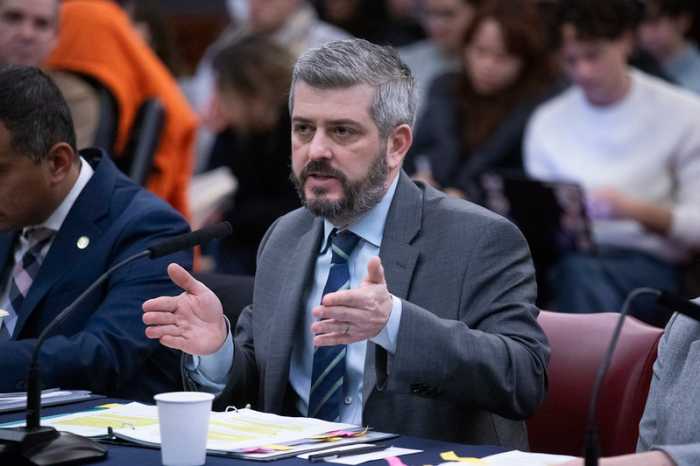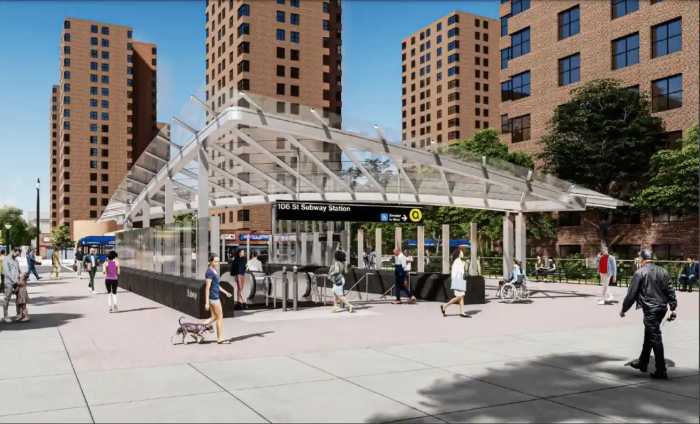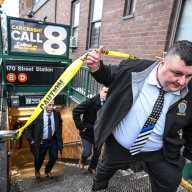Around 450 unionized New Jersey Transit locomotive engineers and trainees went on strike just after midnight on Friday, shutting down the Garden State’s entire rail system for the first time in 40 years.
The strike left an estimated 350,000 commuters between New Jersey and New York City scrambling to find alternative transit options on Friday, which is typically the lightest day of the week.
Commuters’ limited choices include NJ Transit-operated bus routes close to some rail stations and buses the agency contracted to run from four park and rides accross New Jersey during weekday peak hours. However the chartered bus service will not start until Monday and will only cover 20% of those who usually commute via NJ Transit’s rail system, according to the transit agency.
Other available alternatives include ferry service or Amtrak in some parts of the state, according to published reports. NJ Transit also encouraged those who could to work from home during the strike.
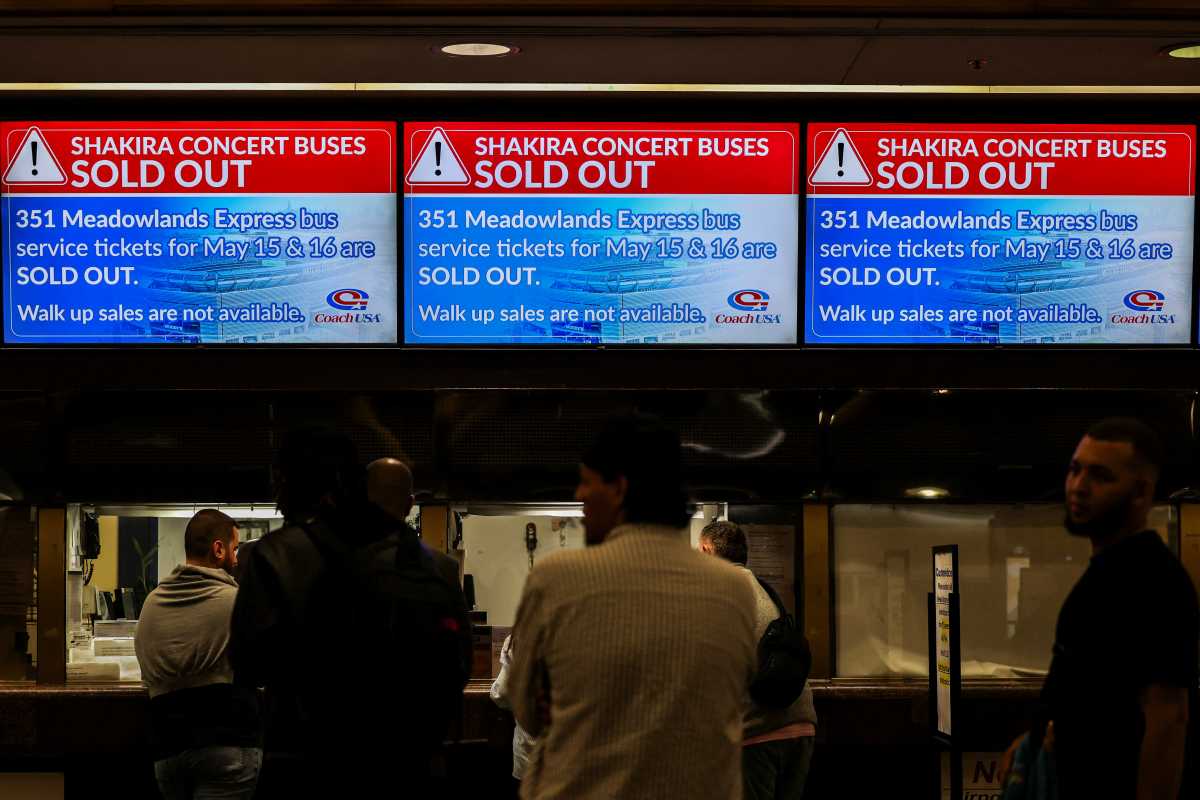
In a Thursday night statement, New Jersey Gov. Phil Murphy insisted his administration has been “working around the clock” to avoid the strike.
“This strike will upend the lives of hundreds of thousands of New Jerseyans,” Murphy said. “My message tonight to our locomotive engineers is this: the path to a new contract will be paved at the negotiating table, not the picket line. Ultimately, it is the people of New Jersey who will suffer because of this strike.”
NJ Transit President and CEO Kris Kolluri said, “I have always said that any deal we reach would have to be fair to our engineers and fiscally responsible without burdening our riders or the taxpayers of New Jersey.”
Mayor Eric Adams, during an interview on CNN Friday morning, that his administration is working with Murphy’s to ensure “we deploy the proper manpower, have shuttles in place.”
“We are going to utilize our Notify NYC to keep people up to date on the continuous movement and negotiations and what will happen if there is a major impact on transportation, traffic mitigations, systems are being put in place right now,” he added. “So our teams are meeting and we’re ready. This region is prepared for any unforeseen circumstances when it comes down to striking.”
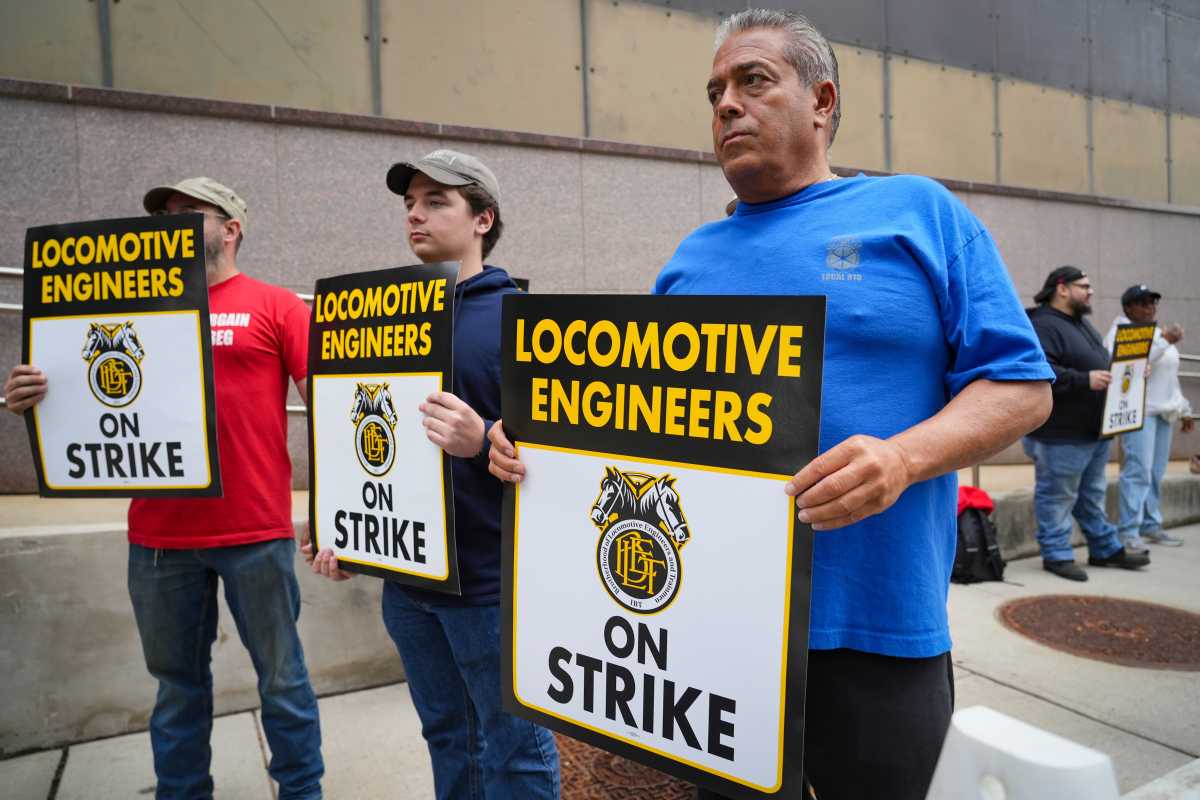
The strike comes after NJ Transit honchos and the Brotherhood of Locomotive Engineers (BLET), the national union representing NJ Transit engineers, failed to reach an agreement in their latest round of negotiations. BLET members overwhelmingly rejected last month a tentative agreement reached between the union and NJ Transit in March.
The union is pushing for pay parity with engineers who work on the Metropolitan Transportation Authority’s commuter rails: the Long Island Rail Road and Metro-North Railroad.
“They have money for penthouse views and pet projects, just not for their front-line workers. Enough is enough,” said BLET National President Mark Wallace in a statement. “We will stay out until our members receive the fair pay that they deserve.”
